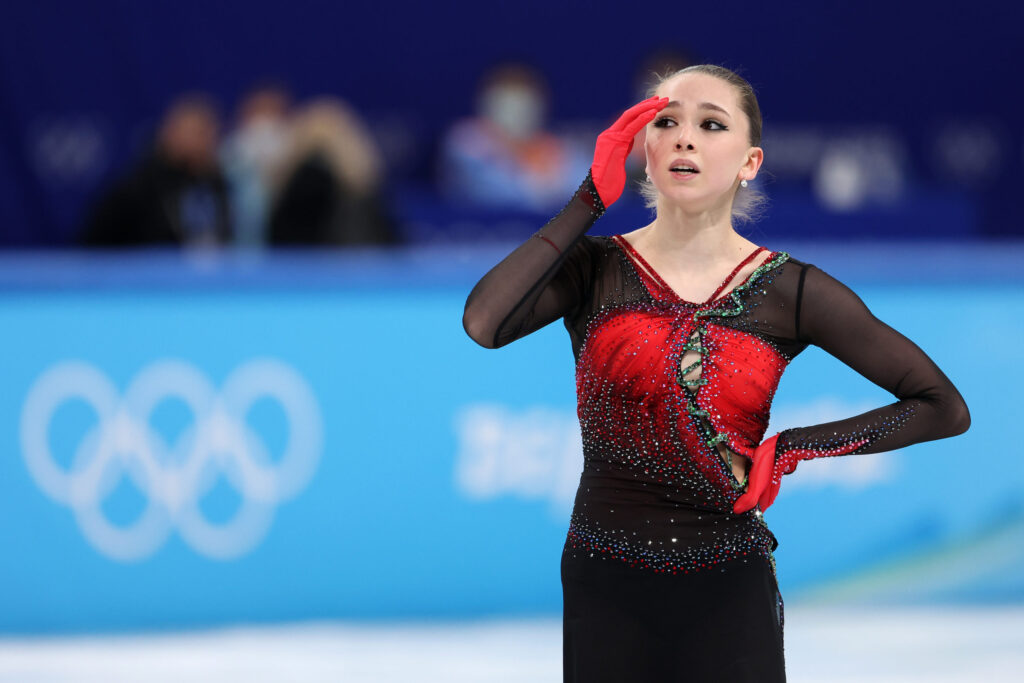Russian figure skater Kamila Valieva returned to training Thursday in Beijing amid a doping scandal that has rocked the Winter Olympics.
The 15-year-old is found to have tested positive for trimetazidine, a banned substance, weeks before the Winter Olympics. Valieva competed in the team figure skating event in Beijing, helping the Russian Olympic Committee to a gold medal. The medal ceremony, however, has been postponed in the wake of the positive test revelation.
Valieva’s sample, which was submitted on Dec. 25 during the Russian figure skating championship, was sent to a lab in Stockholm for testing. The Swedish lab did not report the adverse analytical finding in Valieva’s sample until Tuesday, a day after the team event in Beijing. The sample was analyzed in Stockholm rather than Russia because the country is currently banned by the World Anti-Doping Agency (WADA).
The Russian Anti-Doping Agency (RUSADA) then provisionally suspended the Russian skating star before Valieva challenged the suspension on Wednesday. With a hearing taking place on the same day as Valieva’s challenge, RUSADA lifted her provisional suspension, clearing the way for the Russian skater to continue to compete in Beijing.
“The reasoned decision, including the grounds for which the provisional suspension was lifted, will be issued shortly to all concerned parties,” the RUSADA report stated.
NEW INFORMATION
— Devin Heroux (@Devin_Heroux) February 11, 2022
Valieva challenged imposition of provisional suspension before RUSADA Disciplinary Anti-Doping Committee on Feb. 9 2022 and hearing took place on the same day.
RUSADA Disciplinary Anti-Doping Committee then decided to lift athlete’s provisional suspension
The International Olympic Committee is now appealing RUSADA’s decision, with an expedited decision from the Court of Arbitration for Sport (CAS) set to take place before the women’s figure skating event.
The International Testing Agency (ITA) will lead the appeal before the CAS on behalf of the IOC, the ITA announced in a statement released Friday.
Trimetazidine, the drug Valieva tested positive for, which is banned in the United States, is typically used as a heart medication. Utilized in an athletic setting, the drug is thought to improve endurance.
Russia is currently serving a four-year Olympic ban due to a state-sponsored doping scheme, which came to an apex at the 2014 Sochi Games. Russian athletes are permitted to participate in the Winter Games, not under their country’s flag, but rather under the designation of the Russian Olympic Committee.
Valieva is due to compete in the short program and free skate events beginning on Tuesday.









